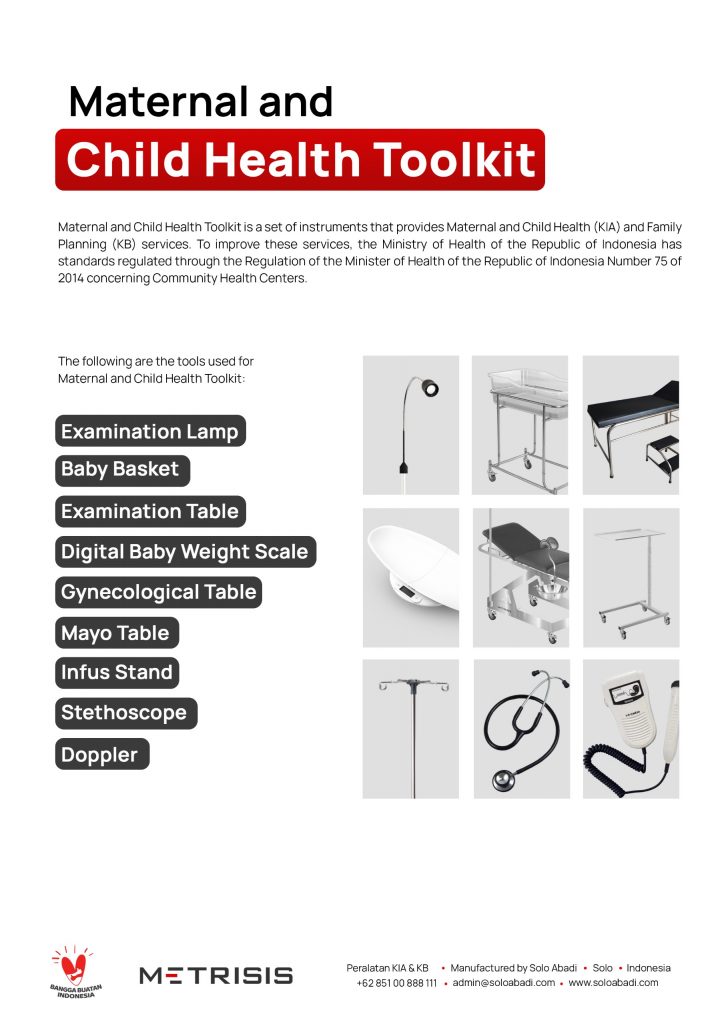8 antenatal care visits schedule based on WHO protocol is an important information you should point out before receiving antenatal or prenatal services.
The visit schedule could help you check the health conditions of the baby and yourself periodically. Following the importance of the schedule, the WHO (World Health Organization) has set a protocol to guide your Antenatal Care Journey.
What is Antenatal Care?
Antenatal care, also known as prenatal care, is the healthcare and support provided to women during pregnancy to ensure the best health outcomes for both the mother and the developing baby. This care typically includes a series of scheduled medical check-ups, tests, and education aimed at monitoring and promoting the health and well-being of the pregnant woman and her unborn child.

Regular Antenatal Care checkups could help you detect any risk of complications, and even reduce it by monitoring mom and fetal health. Almost every study on prenatal care has shown that it significantly improves both fetal and maternal outcomes, particularly when care starts early in the first trimester.
In fact, one study found that beginning prenatal care in the first trimester reduced maternal mortality, indicating that women who sought prenatal care later were at a higher risk.
8 Antenatal Care Visits Schedule Based on WHO
Prenatal care can begin even before conception, a stage known as preconception health. Doctors recommend preparing your body for at least three months before trying to conceive. This preparation includes starting folic acid supplements immediately, reducing alcohol and tobacco use, and consulting your doctor about any existing health issues or medications.
Based on WHO, prenatal care should be scheduled at the following times:
- Contact 1: up to 12 weeks Second trimester
- Contact 2: 20 weeks
- Contact 3: 26 weeks Third trimester
- Contact 4: 30 weeks
- Contact 5: 34 weeks
- Contact 6: 36 weeks
- Contact 7: 38 weeks
- Contact 8: 40 weeks Return for delivery at 41 weeks if not given birth.

Timeline of Prenatal Check-ups
6-12 weeks: Traditional prenatal care begins with an extended office visit with your obstetrician or midwife. During this visit, a detailed medical history is taken, including a family history of genetic disorders. Possible tests include an ultrasound, pelvic exam, blood work, and screenings for blood pressure, weight, proteins, and sugar in the urine.
12-16 weeks: The second appointment typically occurs a month after the first. This visit usually includes blood pressure checks, urine screenings, weight recording, and any additional necessary tests.
18-22 weeks: If an ultrasound has already been done, fundal height (FH) and fetal heart tones (FHTs) are measured. FH is the distance in centimeters from the pubic bone to the top of the uterus, and FHTs involve listening to and measuring the fetal heart rate using a handheld device called a Fetal Doppler.
22-26 weeks: This appointment is similar to the previous one, with the addition of a diabetes screening, which can be performed at 26 weeks or later. Your doctor may also check your hands and feet for swelling.
26-30 weeks: This appointment is likely similar to the previous one, including diabetes screening if it has not already been done.
28-32 weeks: As you approach delivery, your visits may become more frequent. FH and FHTs may be conducted at each visit until 34 weeks to monitor the baby’s progress.
32-36 weeks: Cervical checks begin at 36 weeks to assess the baby’s position in the womb (vertex, breech, posterior, etc.).
36-40 weeks: Appointments may become weekly until around the 41st week of pregnancy. These visits are routine and focus on checking the baby’s health, growth, and position, with few additional tests performed.
Most doctors recommend delivery before 42 weeks. If labor has not spontaneously occurred by 41 weeks, a discussion about delivery options and ultrasound may be repeated.
Best Maternal and Child Health Toolkit to Improve Prenatal Care in Clinics
Metrisis – Maternal and Child Health Toolkit produced by PT Solo Abadi Indonesia can be an excellent choice for enhancing the facilities for prenatal check-ups at healthcare units. This Maternal and Child Health Toolkit set is made from the finest materials and designed with ergonomic principles in mind.

Contact Now and Get Metrisis Product with the Best Prices
Order health equipment that meets the Health Experts’ standards at the best price from Solo Abadi through several methods. For Indonesian agency purchases, items can be acquired directly through the e-catalog in the health equipment display case. You can also connect with us directly via WhatsApp, and we will contact you promptly.


